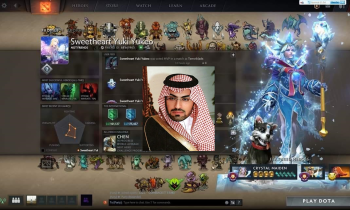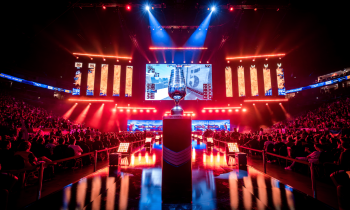The last decade has been a major turning point for the esports market, transforming from a niche entertainment ecosystem to a global industry with millions of fans worldwide. Once relegated by mainstream sports tournaments, the esports market is now shaping the future of competitive gaming. That’s a testament to the immense potential that technology has in taking traditional sports to the next level.

This article unveils the current esports trends and looks at the near future direction of the market based on recent developments in the industry.
Table of Contents
Top esports trends in 2024
The esports industry has grown by leaps and bounds both technically and commercially, aided by the rise of different trends and innovative technologies. These trends shaping the market in 2024 include:
- Augmented reality and virtual reality in gaming
When it comes to delivering an immersive first-person gaming experience, nothing beats virtual reality and augmented reality. As such, multiplayer online battle arena (MOBA) games like Dota2 and League of Legends are likely to introduce AR and VR upgrades in the near future. Additionally, MMORPG games will significantly benefit from VR integration in 2024.
- Competitive multiple mobile gaming
With esports growing into a global industry and the rapid growth of titles like PUBG mobile, multiplayer games proved to be a prominent trend in 2023. In fact, game operators looking to leverage this trend are offering promotions like the BC.Game bonus code to mobile punters.
Competitive multiplayer mobile games keep the players engaged through social interactions while bringing a sense of achievement to players. Additionally, more and more players are enthusiastic about making in-app purchases and paying to spend more time playing or watching a game.
- Generative AI in esports
In 2024, the iGaming industry will start realizing the impacts of generative artificial intelligence in different facets. Generative AI can transform the players’ experience, developing more believable NPCs that can interact with gamers without following a predetermined script. That allows game developers to deliver fresh content that matches the player’s behavior in real time.
The responsive and dynamic nature of generative AI uses exclusive language models to help players interact while on the go. Simply put, generative AI games can create content based on the explicit and implicit actions of the players, ranging from creating new elements to in-game characters and levels.
A look at the near future
The future of esports is looking brighter than ever, aided by advancements in technology and other factors. Advancements in augmented and virtual reality will continue transforming the gaming experience further, delivering immersive environments that put the viewers and players at the heart of every game.
5G connectivity will also play a key role in the future of esports. Its low latency and fast speeds make playing games more seamless and interactions are more feasible in real-time. Additionally, 5G integration will encourage further growth in the already burgeoning mobile esports segment.
Conclusion
Through all these exciting trends and tech developments, it’s clear that the esports industry is here to stay and it’s expected to reshape how people view sports, entertainment, and competition. The industry will continue creating a sense of social interaction and community, delivering an immersive experience to players and viewers.









Comments